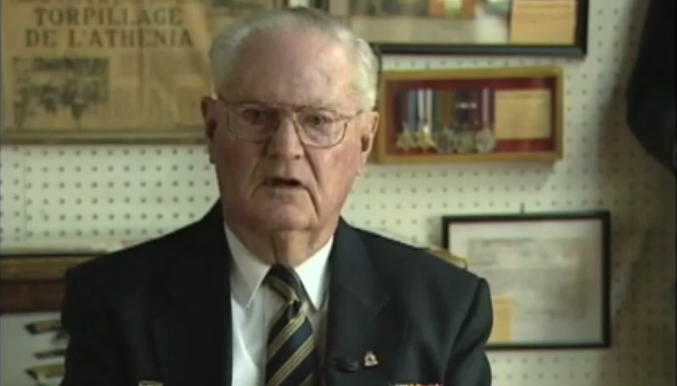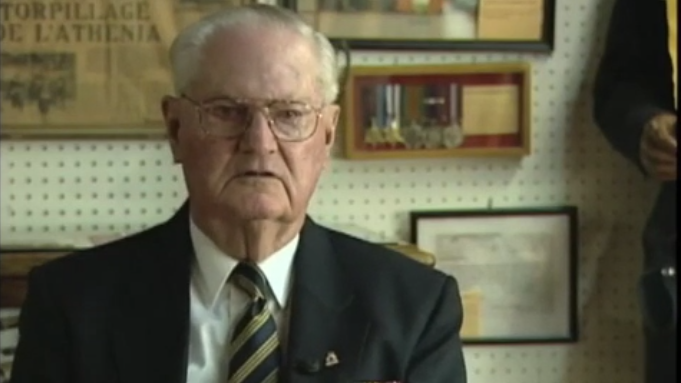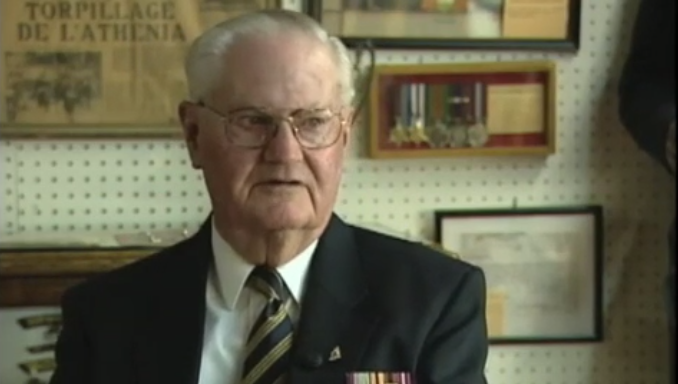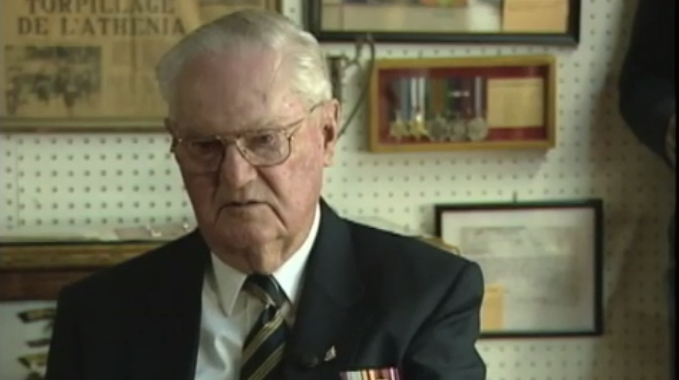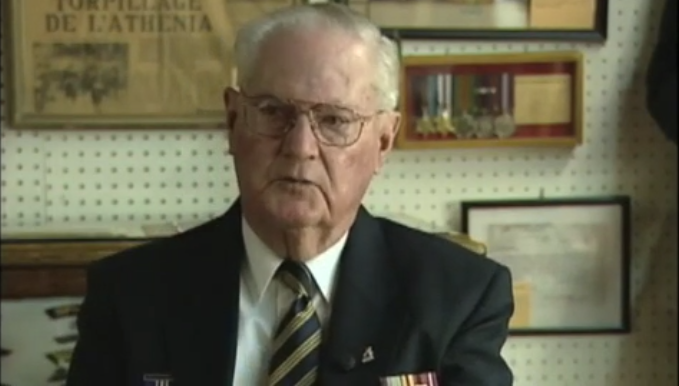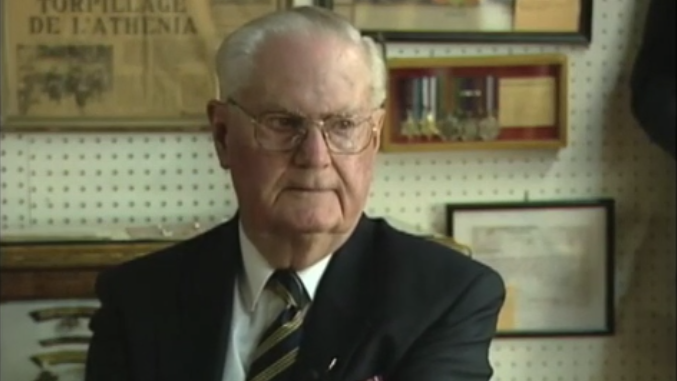Life as a POW: Sulmona, Italy
Heroes Remember
Life as a POW: Sulmona, Italy
I was sent up to one about as far north as Rome, but closer to
the other coast, a place called Sulmona. And that was our first,
sort of permanent, first and last, permanent prison camp.
Interviewer: Can you describe the prison camp at Sulmona for me?
Well, it was a...maybe a mile or so from the railway town,
the railway station, on a side hill and there was a big mountain
overlooking it. And half way up the mountain, there was a
monastery. You could see the path going up to that. It was all
enclosed in a brick wall and it was divided into compounds and
the upper, upper-most compound was the officer's compound where
I was. And below that, there would be NCO's and then other ranks.
At the very foot of the whole thing, there was a big field where
they used to be able to play soccer and we used to get a chance
to play softball and so on. And there was, the first building I
was in was a long barrack-type thing with cots down either side.
There might have been maybe thirty people in that barracks.
There was a washroom at the far end of it and it wasn't heated.
And then later on, just before Italy capitulated, they started
shipping out prisoners to Germany. So they were moving the
British ones first and the upper compound, there was almost like
a motel; rooms with two people in it. So, when they moved those
people out, we kind of moved up and took over that part,
which was a lot nicer. But we ate in a... we had a common mess
and we had a catering officer who... British Army type, I guess.
And the British ran everything, the senior British officer.
So we used to get Red Cross parcels when things were going right,
Canadian parcels with milk and meat and biscuits and things like
that in it. And a lot of this stuff, we put in to the mess to go
along with the rations we were able to get from the Italians,
things like greens, vegetables, and so on. But we never saw any
fresh milk or fresh eggs. And so we would have, I guess maybe one
meal a day at the mess and the rest we would sort of cook up.
We made little stoves out of tin cans. We would boil water in
them and have our tea and stuff like that. And we used to get a
ration of bread a day that was about the size of a, oh,
a mini loaf maybe. That was given to us by the Italians.
Every man got one of those.
Interviewer: So in the run of a day, the average day,
you would have one of these mini-loaves of bread and
what else would you normally have?
Well, they would probably make some soup, but it was pretty
thin stuff. And then they might have a slice of ham or pam
and if there were any vegetables. And they would make what they
called a sweet. Be some kind of little dessert, you know.
We were, at one time, the Red Cross parcels couldn't get through.
They were apparently coming from Switzerland and, I don't know,
the passes were plugged up with snow and instead of one parcel
a week per man, we were getting one for two men and then one
for four men. And so we were getting way down on our food and
we had a, we had a English doctor had been taken prisoner.
He recommended we stop doing any, taking any exercise.
We were getting about 1,000 calories a day, you know, just losing
weight. We had, but in the good... summertime when we were able
to, good weather, that is, we were able to go down and play
softball maybe once a week and we had a, in our own compound,
we had a basketball ring set up and we used to play, throw a
ring over this net and (inaudible) something. We used to play a
game and we used to take a fair amount of exercise, walking,
and played an awful lot of bridge and read. And there were
courses being given. I took my first bookkeeping course there,
called the Scott CA.. There was language courses and,
just something to keep ourselves occupied.
Related Videos
- Date modified:



